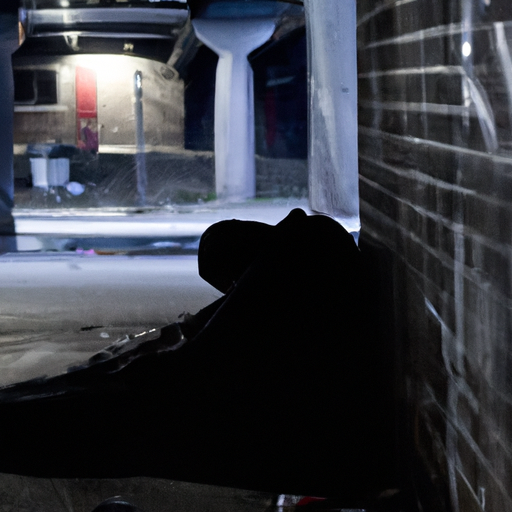The Canadian Opioid Crisis: An Ever-Present Challenge With Devastating Consequences
In recent years, the headlines have been filled with news of the opioid crisis that continues to ravage Canada. In every segment of society, from suburban homes to urban homeless communities, this deadly situation shows no sign of abating. At the heart of this crisis is not only the alarming increase in opioid misuse but also the intersection of societal issues such as homelessness and crime.
Effects of the Opioid Crisis: The Heartbreaking Reality
A searing example of these effects can be seen in a recent case involving a homeless Cree man in British Columbia whose distressing situation, ultimately tied to the opioid crisis, led to a series of regrettable circumstances, the most consequential being his violent arrest. The events surrounding his arrest have raised questions about the systems that are supposed to serve and safeguard society’s most marginal members.
- Rising Incidents of Substance Abuse: Like many homeless individuals, this Cree man was grappling with a personal battle against substance abuse, exacerbated by the easy accessibility of potent opioids on the streets.
- Increased Crime and Violence: The opioid crisis is frequently linked with a rise in crime. The desperation for a fix can sometimes drive individuals into actions they might not normally consider, potentially resulting in conflict with law enforcement.
- Strained Law Enforcement Resources: The magnitude and complexity of the opioid crisis often strain the resources of law enforcement agencies, making it challenging to strike the right balance between maintaining order and providing the necessary support and care for vulnerable populations.
Efforts to Combat the Opioid Crisis
There have been several efforts by various sectors to stem the tide of the opioid crisis. These include but are not limited to initiatives aimed at crime reduction, homelessness abatement, policy reform, and drug education and awareness.
The Canadian Opioid Abatement Class Action: Dismantling the Stigma
The Canadian Opioid Abatement Class Action is an evolving demonstration of the judicial system’s efforts to hold accountable the entities believed to be at the origins of the widespread opioid crisis. These cases symbolize a broader call for systemic change that extends beyond punitive measures to more comprehensive solutions like addiction recovery programs and community-based support.
Naloxone: A Lifeline Amid the Crisis
As part of the concerted effort to mitigate the harm done by the opioid crisis, the widespread use of naloxone—a medication used to counter the effects of opioid overdose—has become an essential tool for first responders and community members. Naloxone distribution has become a common initiative in many communities, but accessibility remains an issue, particularly among the homeless and rural populations.
Conclusion
While the gravity of the opioid crisis is undeniable, it is critical to remember that it is not a standalone issue. It intersects with various societal challenges such as crime and homelessness. Consequently, effectively addressing the opioid crisis demands comprehensive, multi-faceted approaches. This begins by recognizing the humanity and dignity of those most affected and actively promoting systemic changes that address the root causes rather than just the symptoms of this pervasive crisis.
Key takeaways:
- The opioid crisis intersects with societal issues such as crime and homelessness, which are compounding factors in the complexity of this crisis.
- Efforts to combat the opioid crisis are varied and include initiatives like the Canadian Opioid Abatement Class Action, naloxone distribution, and various community-based programs.
- The path to resolving this crisis requires comprehensive approaches and systemic changes that address the root causes within the society.
In our efforts to tackle the opioid crisis, we must remember that at the core are individuals—brothers, sisters, parents, children—who are battling personal demons. Change starts with acknowledging their humanity and challenging the pervasive, harmful stigmas that can hinder their path to recovery.
